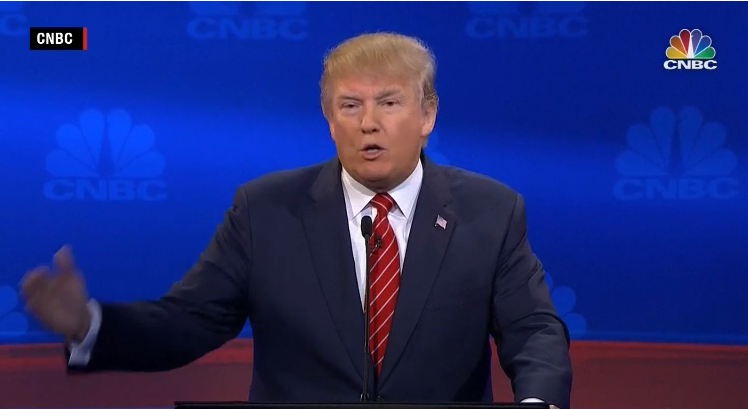Republican presidential candidates lit into CNBC’s moderators at Wednesday night’s GOP debate, issuing the sharpest attacks on the mainstream media of the cycle.
Sen. Ted Cruz accused the moderators of trying to instigate a cage match, Sen. Marco Rubio called the U.S. media a super PAC for Hillary Clinton, and Donald Trump slammed the moderators’ “ridiculous questions.”
In the final minutes of the debate, sources told CNN, representatives from the campaigns began confronting the Republican National Committee to voice complaints about the tone and substance of the debate.
The attacks on the media were red meat for the conservative base, which already has a deep mistrust of the mainstream press. But even by conservative standards, the attacks on Wednesday night were particularly aggressive and unrelenting, and delighted the audience in Boulder, Colorado.
The attacks also came as CNBC’s moderators struggled to maintain control of a debate that, according to many journalists on Twitter, they were ill-equipped to handle.
The entire night left GOP hopefuls, audiences in Boulder and reporters on social media crying for the previous Republican debate moderators from Fox News and CNN.
Politico’s John Bresnahan joked that CNBC was frantically calling CNN and Fox “to ask how to run a debate,” while Matthew Continetti, the editor of the conservative Washington Free Beacon, wrote: “Winners of GOP Debate so far: Jake Tapper and Anderson Cooper.”
On stage, Sen. Cruz was the night’s most vocal media critic, condemning CNBC for trying to instigate fights between the candidates while ignoring issues that mattered to voters.
“The questions that have been asked so far in this debate illustrate why the American people don’t trust the media,” Cruz said, after being asked a question about the debt ceiling. “This is not a cage match.”
“How about talking about the substantive issues people care about,” Cruz said to thunderous applause from the audience.
The audience in Boulder and at home was electrified by Cruz’s attack. Social media mentions of Ted Cruz blew up during his attack on the media, while pollster Frank Luntz said his focus group “burst out in applause at Ted Cruz’s media attack.”
“Ted Cruz’s focus group dials hits 98 with his attack on media bias,” Luntz wrote on Twitter. “That’s the highest score we’ve ever measured. EVER.”
The Texas Senator wasn’t the only one to slam the mainstream media at the debate: Sen. Marco Rubio, asked to respond to a Sun Sentinel editorial that had called on him to drop out of the race, called it “evidence of the bias that exists in the American media.”
Later in the debate, Sen. Rubio declared that the mainstream media was so biased in favor of Hillary Clinton that it was effectively functioning as her Super PAC.
Donald Trump, who had predicted early that the debate would be “unfair,” criticized CNBC’s moderators for asking “ridiculous questions,” and later called a question to Mike Huckabee “nasty.”
New Jersey Gov. Chris Christie looked one moderator in the eye and said, “even in New Jersey what you’re doing is called rude.”
At various points in the debate, both Rubio and Trump accused the moderators of having their facts wrong.
CNBC’s problems were further compounded by the network’s meandering commentary between the night’s two debates, which was widely panned on Twitter.
“CNBC does underscore that the only people sometimes more vapid than candidates are journalists talking about candidates,” New York Times columnist Nicholas Kristof tweeted, echoing the sentiments of hundreds of journalists and political operatives.
“Is this a public access channel?” asked Jon Favreau, the former speechwriter for President Barack Obama.
The commentary was almost universally criticized for being unfocused and lacking substance. The panelists, usually familiar with covering Wall Street and finance, were left scrambling to talk about a presidential race they seemed to know little about.
A CNBC spokesperson declined to comment on the candidates’ attacks on the moderators.


